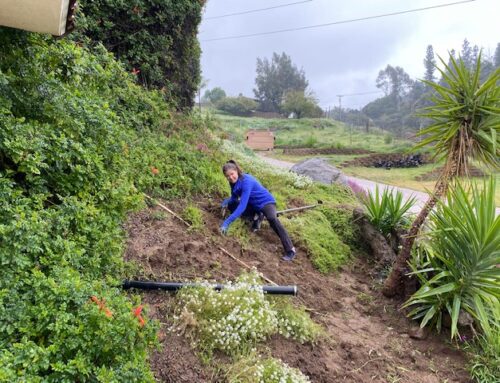There are strategic ways that we can talk to children, and approach sexuality in the early years, that can set children up to develop a healthy sense of their sexuality for life.
Providing healthy and good touch, bringing a matter of fact stance and neutrality to children learning about sexuality, and raising confident children are some of the ways that we can do this. Because I see addressing this to a couple separate age groups with very defining characteristics, I am going to break this blog up in two sections: Children who are under 4 years, and those who are ages 4-8. If you have a young child in either of these groups, and need help knowing what is age appropriate, and some helpful responses to natural behavior, hopefully this blog helps!
-Kathryn
Developing Healthy Sexuality in Children who are under 4 years old:
What if this started before birth, instead of at puberty?
Sexuality starts at conception, and we immediately refer to our babies as boys and girls. The documentary called Raising Cain talks about how we socialize our boys and girls in very different ways. When really at birth, there is very little difference between the two sexes, other than their private parts and sexual anatomy.
Thinking about your infant’s sexuality may be helpful in getting yourself comfortable with this concept of them being a sexual being. Even though the sexual behavioral system will only come online when they are teenagers, you are investing in their self-worth and self-knowledge from an early age.
What does sexuality look like in Infancy?
Babies like to touch themselves and will naturally touch their genitals. When my children have, I try to manage my own reactivity to this. A part of me wants to react strongly and say, “No, that’s not ok.” But then another part of me wants them to learn that genitals are no different to an elbow or a leg. And so a reflection like, “Oh that’s your vagina”, or “The skin there is so soft it feels good to touch”, might be something I would say. Mostly what I want to communicate is that there is nothing wrong with their interest and curiosity, and that they need to explore their entire body and not just certain parts of it.
At the same time, this doesn’t mean that they can overly focus on their private parts. It’s very natural for children to start to self-soothe by rubbing their genitals or by what I call humping. I don’t think of this self-soothing as masturbating, because this has a very negative connotation. Instead this is about self-soothing. Of course, there are many other ways to self-soothe and young children should be co-regulating with a parent, so parents can move in and help children to regulate in different ways. But if your child is humping, this could be a sign that they need help with soothing and calming their nervous system.
Benefits of talking to your young child about sexuality as early as possible:
- You can avoid the big embarrassing and intense talk when puberty suddenly hits, you set up a foundation of healthy sexuality that you can add to over the years
- Gives you time to get comfortable with your own sexuality and with having this conversation
- Creates an atmosphere in the family context of comfort with sexuality, that prevents shame and guilt around sexuality
Ways to do this:
- Finding language that is correct and that you feel comfortable with
- Read the literature that is out there already, there are fabulous books, we’ve listed a few below
- Find an anatomy book, children love to draw and point to pictures
- Take them to the zoo and explain what is happening when they see the gorilla’s humping, or use other examples in nature as you see them happening, it takes the focus off of you and onto an experience they are already having
- Infant massage will set a foundation of good touch in your child’s life, skin to skin contact brings emotional security.
- Find ways to help your child to learn to self-soothe. The more you calm their nervous system, the more they will learnt to self-soothe. Then using calming music at bedtime, white noise machines, helping them attach to a transitional object, or soothing with a thumb or pacifier can be helpful too.
- Teaching good hand-washing practices after toileting. Young children are naturally proud of their excretions, so try not to give them the message that this is “bad”.
What’s Normal for Children at this age with regards to Genital Discovery:
- Self-stimulation
- Poking their fingers in their noses, ears, mouth, belly buttons and genitals
- Interest in different urinating postures, even standing up for girls.
Sexuality is a hot topic when you are around 4 – 8 year olds.
Children in this age group love to run around naked. They find potty talk hilarious. If you’re a part of my family, the kids love to touch my booty. Let’s face it, it’s hard to avoid sexuality in the 4 – 8 year range. Children are gathering information during these years about their gender, about roles, about sexuality. So let’s lean into these awkward moments, and use their natural curiosity to educate them well.
One of the phrases that I say most during this age groups is: “Guys, that’s not appropriate”. My kids are still bathing together, and so they get lots of lectures about not touching each other’s private parts, about giving each other privacy when they are on the toilet. Learning to dress behind closed doors and learning to ask for personal space is a constant topic too.
At 4 and 5 they are just starting to identify with their gender, until then my 3-4 year old was still calling her vagina a penis and trying to pee standing up, as she wanted to emulate her older brother. These are natural moments to say, actually you’re a girl and you have a vagina, it’s boys who have a penis. Giving children correct information gives them a foundational knowledge. School education goes a far way to giving children a healthy awareness of privacy, actually sometimes they take this too far I think. Our children are hyper-vigilant about touch because the schools are so stringent on no one touching each other, when this is a very natural age to want to hug on their friends.
Potty talk:
This seems like a natural phase for children, and I personally try not to shut it down too much. I just go along with it, giggle at times, but also try to not give too much attention to it. Putting a sharp lid on it every time I think can exacerbate the excitement and secrecy of it. So I like to let it play itself out and then slowly put up a boundary, ok guys let’s change the topic, or enough potty talk for now. Of course this is going to depend on who your child is and how much they like to push the boundaries. Children who are more naturally curious and like touching themselves and talking about butts all day long, need tighter boundaries from the get go.
Sexual Talk:
In my experience, it’s around third grade that the boys are starting to giggle and whispering about sexual nuances. They are talking about heterosexuality and homosexuality. Some boys are more interested in this than others, but I’ve heard the conversations on the playground. It’s always been my goal to teach my children about sexuality before they hear it from anyone else. And at this age, the top questions are going to be – what is sex and how are babies made?
What to share and when to share?
And so what do we share and when do we share? The rule of thumb is to share as much as is needed and as little as is necessary. If you have a naturally curious child, consider telling them sooner than later. It’s also important to consider your social context, and what your children are being exposed to outside of your home.
I wouldn’t recommend telling a child before they are 7 years old, unless you are facing some special circumstances (ie. living in a very sexualized culture). Telling them at 7 is on the young side I think. The difficulty with this, is that most parents are telling their children about what is sex is, at a later age. So while you can talk to your child about it, which I did, you might be putting your child in the position to keep a secret. Depending on what you share with them, they might want to process the information in their social group. Of course you can reinforce with them, that this sex education is only to be discussed in the family, but some children may struggle to adhere to this. And this could put them in an awkward position socially to not talk to their friends about what they already know.
Telling them at 8 or 9, I don’t think I would wait for longer than this age to share with them, because then you are risking that they hear it from others first. Of course it’s important to consider your community here. If you are part of a more sheltered community, then you could probably wait until they are 11. But if your kids are part of a public school system, and they are hearing other kids talking on the play ground, then you can bet that they will hear it from someone else first, if you wait too long.
What’s normal in this age range:
- Curiosity about sexuality begins.
- Conscious of the navel, may even grab genitals.
- Interest in bathroom activity of others. These children have interest in bathroom etiquette and genital words, such as ‘pee’ and ‘poo’.
- Asking questions about sexuality. They have vague and somewhat magical notions about sex. Often believe that a “stork brings a baby”. These children think literally, a baby grows from mommy’s egg, and the egg look like those bought in a grocery store.
- Playing doctor is common. Games of ‘show’ are common.
The scenario’s you want to be ready to deal with are:
- Questions about where babies come from
- Getting grabbed on your behind or your breasts
- Their interest in seeing you naked
- Questions about how the baby gets in and out of mommy’s tummy
- The noise in your room last night
- Whether a girl can marry a girl
- What gay means
Resources:
Raising Cane documentary, https://www.youtube.com/watch?v=y9k0vKL5jJI
Understanding Children’s Sexual Behaviors: What’s Natural and Healthy
Toni Cavanagh Johnson, Ph.D www.TcavJohn.com
God Made All of Me: A Read-Aloud Story to Help Children Protect Their Bodies, Justin & Lindsey Holcomb




